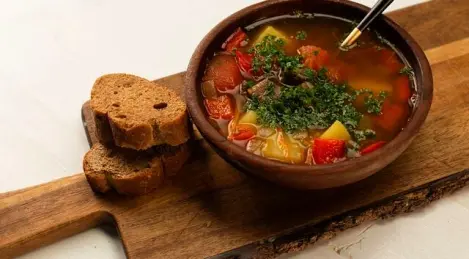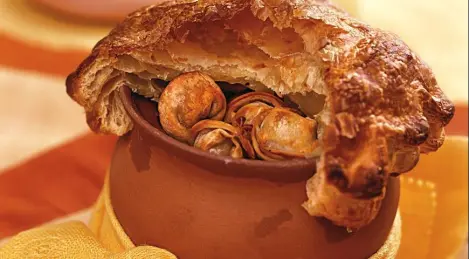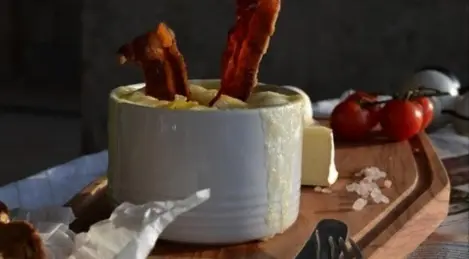Pork skewers with wine vinegar

Pork skewers with wine vinegar are unusually tender and juicy. How is such a result achieved? The “magic” effect of wine vinegar, as well as onions, or rather, its juice, which is released during intensive mixing with pieces of meat. In general, there is nothing particularly tricky. By the way, instead of wine vinegar, you can use a good apple or, for example, balsamic. But the one that is called "table" is better not to take: it will give the meat too sharp, unpleasant aftertaste and sour smell. If you do everything right and present the guests with pork skewers marinated with wine vinegar, then they will definitely be delighted. Checked multiple times!
How to cook Pork skewers with wine vinegar
Step 1

Cut the pork horizontally into 3-4 cm thick layers. Then cut each layer lengthwise into 3 cm wide strips. Finally, cut each strip across into 3-4 cm long pieces.
Step 2

Peel the onion and cut into thin half rings, put in a bowl. Sprinkle with salt and pepper. Pour vinegar, shake hands. Add meat to onion and mix thoroughly. Tighten with cling film and marinate no longer than 1.5–2 hours.
Step 3

Light the coals in the grill - they should burn well and turn into white ash. Shake the meat off the marinade and string the pieces on the skewers as tightly as possible. Grill the skewers over charcoal, turning frequently, for about 20 minutes. Before serving, let the meat “rest” on skewers for 5-7 minutes.
Pork skewers with wine vinegar - FAQ About Ingredients, Baking Time and Storage
Reviews: 0
0 Overall ratingHave you already prepared this recipe? Tell what you think.
Write a review
Trending

Diet marshmallow
Diet marshmallow is a treat for those who watch their figure. Light and airy dessert from France. Unlike the classic dessert, PP marshmallow is prepared on the basis of a sugar substitute. According to the recipe, PP marshmallow at home is prepared f

Beef shurpa
Shulum, chorpa, shorpo, sorpa... In different countries, shurpa is called by different names, but it looks about the same everywhere: a rich soup with meat and vegetables. Various herbs and spices can be added to it, or it can be made on the basis of

Azu in Tatar style
Azu is a Tatar dish that gained popularity in Soviet times. Traditionally, azu is made from lamb or beef, with onions, potatoes and pickles added. Everything is cut into strips and stewed in tomato sauce.











